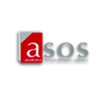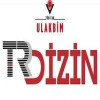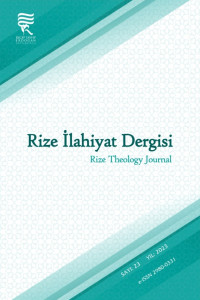Research Article
Research Note
Aim & Scope
Author Guidelines
Principles of Writing an Article
1. The following writing principles are valid for all articles to be sent to our journal, including research articles, translations, reviews of books, articles and scientific meetings, and doctoral thesis abstracts.
2. Articles, Ms. It should be sent as a Word file without the author's name. In the text of the article uploaded to the system, the author's name-surname, imprint information and if the article, thesis, project, communiqué, etc. produced, there should be no information about it. All such information should be written in the Author Information Form and sent as a separate file. (Click for the Author Information Form.)
3. Copyright and translated articles should be uploaded to the system with 100-250 words Turkish and English abstracts and keywords added. It is requested that the English summary of the articles that pass peer-review be expanded to 750 words.
4. In the INTRODUCTION section of the articles, information such as literature information, the main problem of the study, its purpose and importance should be included. Articles that do not contain the information specified in the INTRODUCTION section will not be processed.
5. The number of article pages sent to our journal, bibliography, tables, figures, etc. It must not exceed 9000 words.
6. Articles for publication/meeting evaluations sent to our journal should be between 800-1800 words, excluding references.
7. Every scientific article should have a "bibliography", the sources should be written in the Latin alphabet, care should be taken for the way it is given, its accuracy and accessibility.
8. For articles written in languages other than Latin letters, the title, abstract, keywords and bibliography (references) written in Latin letters must also be included.
9. Regardless of whether they are copyright or translation, the imprint information of all articles should be added to the Author Information Form by the author and sent.
10. The approval document must be uploaded to the system along with the articles that require Ethics Committee Approval.
11. A template tag should be added to article evaluation, book evaluation, scientific meeting evaluations and doctoral thesis summaries before they are uploaded to the system.
12. The article page structure, font-size, page borders and other format features should be adjusted in accordance with the article writing guide.
13. ISNAD citation system (2nd edition) is used in our journal. (Click for ISNAD CITING SYSTEM 2nd Edition.)
A. Essay Guidelines See
B. Book Review Guidelines See
C. PhD Dissertations Guidelines See
D. Symposium-Conference Review Guidelines See
Ethical Principles and Publication Policy
Ethical Principles
Rize Theology Journal is a peer-reviewed journal published electronically twice a year in April and October. Care is taken to ensure that the publications to be published in the Rize theology journal comply with the ethical policies published by the Committee on Publication Ethics (COPE) and the Scientific Research and Publication Ethics Directive prepared by the Higher Education Institution. In this direction, authors who submit articles to the journal are requested to comply with the following ethical rules.
See. COPE Directive (in Turkish).
See. YÖK Scientific Research and Publication Ethics Directive.
Authors Responsibilities
1. Footnotes and bibliography list should be complete.
2. Plagiarism and fake data should not be included. The plagiarism rate determined by the Editorial Board is 15%.
3. The names of all authors who actively contributed to the research should be included.
4. Those who do not actively contribute to the research should not be included among the authors, and those who contributed to the research other than authorship should be thanked for their contribution to the relevant research.
5. All authors have to make the editor's corrections.
6. Should not publish the same research in more than one journal and should comply with scientific research and publication ethics.
Actions against scientific research and publication ethics are as follows:
a) Plagiarism: To present the original ideas, methods, data or works of others as one's own work, in whole or in part, without attribution in accordance with scientific rules,
b) Fraud: Using data that does not actually exist or that has been falsified in scientific research,
c) Distortion: To falsify research records or data obtained, to present devices or materials that are not used in the research as if they were used, to falsify or shape the research results in line with the interests of the people and institutions that receive support,
ç) Republishing: To present the repetitive publications as separate publications in academic appointments and promotions,
d) Slicing: To present the results of a research as separate publications in academic appointments and promotions by dissecting the results of a research in a way that violates the integrity of the research and publishing it in more than one issue,
e) Unfair authorship: Including people who do not have active contributions among the authors or not including those who do, changing the order of authors in an unjustified and inappropriate way, removing the names of those who contributed actively from the work in subsequent editions, having their name included among the authors by using their influence even though they do not have an active contribution.
Responsibilities of the Referees
1. Referees must be impartial in their evaluations.
2. Reviewers should not have a conflict of interest with the research, authors and/or research funders.
3. The referee is expected not to answer only yes or no as an evaluation, but to detail the negative opinions and state their reasons.
4. Referees are expected to make a text-based evaluation only. It is important that the author(s) do not use expressions that will damage their reputation and personality rights.
5. Referees should indicate published but not cited works related to the research.
6. Reviewers must keep the manuscripts they check confidential.
Editor(s) Responsibilities
1. Editors have full responsibility and authority to accept or reject an article.
2. Editors should not have a conflict of interest regarding the accepted or rejected articles.
3. Only articles that will contribute to the field should be accepted.
4. It should support the publication or withdrawal of the correction when errors are found.
5. Referees must be anonymous and prevent plagiarism/fake data.
Ethics Committee Approval
In accordance with TR Index Journal Evaluation Criteria, authors are required to obtain and document ethics committee approval for all studies that require ethics committee approval. For this reason, the approval document should be uploaded to the system together with the articles that require ethics committee approval.
Studies that require Ethics Committee Approval according to TR Index Journal Evaluation Criteria are all kinds of studies that require data collection from the participants by using survey, interview, focus group work, observation, experiment, interview techniques with qualitative or quantitative approaches; These are retrospective studies in accordance with the personal data protection law. In addition, it should be stated that the Informed Consent Form was received in the case reports, permission was obtained from the owners for the use of scales, questionnaires, photographs belonging to others, and copyright regulations were complied with for the intellectual and artistic works used.
Publication Policy
1. Rize theology journal is a peer-reviewed journal published twice a year (April-October) in the field of social sciences.
2. Article acceptance dates are 1 November-15 February for the April issue and 1 May-15 August for the October issue.
3. The publication language of the Rize theology journal is Turkish. In addition, scientific studies in Arabic and English are also published. The Editorial Board decides on the publication of works in other languages.
4. Copyright and translated articles, simplifications, edition critiques, book reviews, scientific meeting evaluations and doctoral thesis summaries are published in Rize Theology Journal. Only the studies of researchers who do postgraduate studies are accepted to the Rize Theology Journal.
5. Manuscripts submitted to the journal must not have been published elsewhere or sent for publication.
6. Studies submitted to the journal must be original and in line with academic standards.
7. In order to process the manuscripts received in the translation type, the document stating that the author's permission has been obtained must be uploaded to the system with the name of "Permission Document".
8. In translation and simplification articles, a copy of the originals of the texts should be added to the post by transferring them to the computer environment.
9. Manuscripts sent to the journal without complying with the journal writing principles are returned to the author for correction without being referred to the referee.
10. Article publication process:
a. The articles sent for publication are pre-checked, plagiarism screening, Turkish-English language control and referee evaluation stages.
b. The work, which does not pass this process even though it has been examined three times during the pre-check and plagiarism stage, is returned to the author and is not processed again in the same publication period.
c. Studies that pass the pre-control and language control stages and are found suitable for evaluation are included in the referee evaluation process.
11. Referee evaluation process:
a. Double-blind refereeing system is applied in Rize theology journal.
b. When necessary, the editor of the field to which the article is related also contacts the Editorial Board and sends the article to two referees who are experts in the field.
c. The article, in which two referees have reported positive reports, is included in the publishing process.
D. If one of the referee reports is positive and the other is negative, the study can be sent to a third referee or it can be reviewed and decided by the Editorial Board.
to. Confidentiality is essential in referee reports; For this reason, the names of the referees are not included in the imprint of the journal.
12. A maximum of two works by the same author (copyright or translation) can be published in a single issue.
13. No royalties are paid for published articles. Authors are not charged for their publications.
14. Rize theology journal reserves the right to make corrections in the submitted articles and to keep the unpublished articles in the journal archive.
15. The legal responsibility of all works published in Rize theology journal belongs to the author and cannot be associated with the Editorial Board of the rize theology journal.
16. All policies and processes in Rize theology journal are determined by the Editorial Board. The authority to decide on matters not mentioned here belongs to the Editorial Board.
Copyright Policy
From the date the article/translation is sent to the rize theology journal, until the end of the evaluation process, and if it is published, from the date of publication, rize theology journal cannot be published in whole or in part in any visual, audio or printed medium without the permission of the Editorial Board; It can be quoted with reference to the Rize Theology Journal.
Price Policy
No fee is charged from the author or institution under any name.
Indexes
Citation Indexes
Other Indexes
Journal Boards
Owner on Behalf of Recep Tayyip Erdogan University Faculty of Theology

Managing Editor

Baş Editor

Editorial Board










































 Web
Web

Co-Editors


Secretary

Field Editors











Language Editors (English)




Language Editors (Arabic)
Redactors




Ethics Editor

Statistics Editor

Layout Editors

Social Media Editor




































